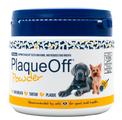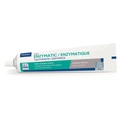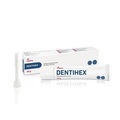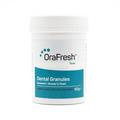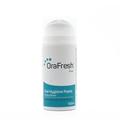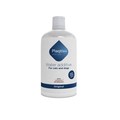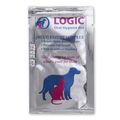Just as human teeth are vulnerable to disease and decay, so too are your pet dog's.
In fact, dental problems are some of the most commonly diagnosed health conditions in pooches over the age of three and can even lead to serious problems with a canine's internal organs.
Therefore, whatever age and breed of canine companion you have at home, it is essential to make sure you keep their pearly whites in good condition.
And the first step to healthy canine teeth is regular teeth brushing, at least three or four times a week and ideally every day.
"Brushing your dog's teeth and keeping your dog's teeth clean shouldn't be a chore," says veterinary surgeon Marc Abraham. "It should be a fun thing that you can share, and it also increases bonding as well."
The vet suggests starting with a finger brush before moving onto a proper brush, and always using special canine toothpaste that doesn't contain fluoride.
"You want to steer clear of all fluoride because it can cause tummy upsets and discolouration of the enamel of the teeth," he explains.
"There is special doggy toothpaste out there that is not expensive, it is usually poultry or beef flavoured, and it doesn't contain fluoride, but is healthy and ideal for using in your dog's mouth."
Another important factor to consider if you're keen to improve your pet's oral health is their diet. In general, a dry dog food is best for your pet's teeth, as the pieces of kibble help scrape away plaque and tartar, and it's worth looking out for a brand that is specially formulated to take care of dogs' gnashers.
Finally, it's also worth treating your pup to dental chew toys, which will not only benefit your dog's teeth by reducing tartar and massaging the gums, but will also be greatly enjoyed by your canine companion.
Written by: Visitor

